Concept laboratory Identity Politics
April 8–10, 2010
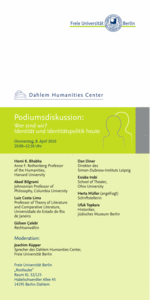 |
The concept laboratory was divided into two parts: The first part was a public panel discussion, which was well received by the German media (Tagesspiegel, April 9, 2010: “Identität als Puzzle” by Andrea Dernbach; interview by Berlin radio station RBB Kulturradio with the director of the DHC Joachim Küpper).
The second part of the event consisted of an intensive, internal discussion on the basis of talks held by the participants. |
Guests of the Panel Discussion:
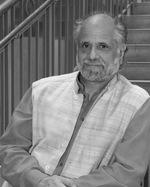 |
Homi K. Bhabha is the Anne F. Rothenberg Professor of the Humanities in the Department of English and the Director of the Humanities Center at Harvard. He also serves as the Senior Advisor on the Humanities to Harvard’s President and Provost. He is the author of numerous works exploring colonial and postcolonial theory, cultural change and power, and cosmopolitanism, among other themes. Some of his works include Nation and Narration and The Location of Culture. Bhabha serves on the Advisory Boards of the Graduate School of North American Studies and the International Research Center “Interweaving Performance Cultures” at Freie Universität Berlin, the Advisory Group of the Literary Studies Symposia at Deutsche Forschungsgemeinschaft. He is the Vice-Chair of the World Economic Forum’s Global Agenda Council on Values and a Trustee of the UNESCO World Report on Cultural Diversity. |
 |
Akeel Bilgrami is the Johnsonian Professor of philosophy at Columbia University. He got a first degree in English literature from Elphinstone College Bombay. After having graduated he went to Oxford University as a Rhodes Scholar to read philosophy, politics, and economics. He has a Ph.D in philosophy from the University of Chicago. He is the author of the books Belief and Meaning (1992), Self-Knowledge and Resentment (2006) and Secularism and the Moral Psychology of Identity (forthcoming in 2010). He is in the midst of writing a short book on Gandhi's philosophy and a longer work on "practical reason in morals and politics". |
 |
Gülşen Çelebi is a lawyer specializing in family law, criminal law and aliens' law in Düsseldorf. She particularly dedicates her work to the rights of women with an Islamic background. Due to her voluntary commitment she was awarded the prize “BürgerInnenEngagement” by the SPD Düsseldorf in 2010. In her book Kein Schutz, nirgends Çelebi describes the honor killing of one of her clients. The book was banned shortly after its publication. |
 |
Luiz Costa Lima is Full Professor of Comparative Literature at Pontifícia Universidade Católica (PUC) in Rio de Janeiro. His most recent research is on "Fiction and its forms". He received the Humboldt Research Award from the Alexander von Humboldt Foundation in 1996. He taught at the University of Minnesota (1984-1986) and has been visiting Professor in Stanford, Montréal, Paris VIII, Zentrum für Literaturforschung in Berlin, at the Universidad Católica de Chile (Santiago), Universidad Iberoamericana de México, and at Johns Hopkins University. He has published books on the Theory of Literature, Comparative Literature, and Brazilian Culture and Literature. His most recent books are O Controle do imaginário e a afirmação do romance (2009) and História. Ficção. Literatura (2006). Some of his publications have been translated into English: Control of the imaginary (1988), The Dark Side of Reason: Fictionality and Power (1992) and The Limits of Voice: Montaigne, Schlegel, Kafka (1996). Die Kontrolle des Imaginären (Suhrkamp) has been published in 1990. |
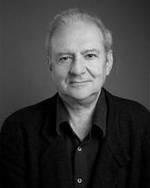 |
Dan Diner holds a degree in Law and History. He is Professor of Modern History at Hebrew University Jerusalem, Director of the Simon-Dubnow-Institute for Jewish History and Culture at the University of Leipzig, and Professor at the History Department of the University of Leipzig. He is also Member of the Saxonian Academy of Sciences in Leipzig. Diner published on the European History of the 20th century and on the Middle East. His focus is on German history, especially National Socialism, the Holocaust and Jewish history. His recent publications include: Disseminating German Tradition: The Thyssen Lectures (ed. with Moshe Zimmermann, 2009), Aufklärungen: Über Varianten von Moderne (2008), Gegenläufige Gedächtnisse: Über Geltung und Wirkung des Holocaust (2007), Restitution and Memory: Material Restoration in Europe (ed. with Gotthard Wunberg, 2007), Synchrone Welten: Zeitenräume jüdischer Geschichte (ed, 2005), Versiegelte Zeit: Über den Stillstand in der islamischen Welt (2005). |
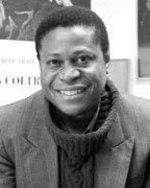 |
Esiaba Irobi was born in the Republic of Biafra but has lived in exile in Nigeria, the UK and the USA. He holds a BA in English/Drama and an MA in Comparative Literature from the University of Nigeria, Nsukka, as well as an MA in Film and Theatre from the University of Sheffield, UK. His doctoral dissertation in Theatre Studies at the University of Leeds has recently been converted into a book entitled: A Theatre for Cannibals: Images of Europe in African Performance of the Pre-Modern, Modern and Post-Modern Periods (forthcoming in 2010). His most recent publication is Before They Danced in Chains: Performance Theories of Africa and the African Diaspora. He is presently a Distinguished Research Fellow at Freie Universität Berlin International Research Centre’s “Interweaving Performance Cultures“ program where he is working on a book project with the title: There is a Thief in All of Us: The Politics and Aesthetics of International Performance in the Age of Globalization. |
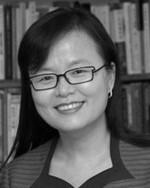 |
Eun-Jeung Lee studied political science, sociology and ethnology at Ewha University, Korea and at University of Göttingen, Germany. 2001 she habilitated at the University of Halle. Since 2008 she is professor for Korean Studies at Freie Universität Berlin. Her major research fields are the intercultural history of political ideas, political culture and modern political history in Korea. She has published several books in German including Konfuzius interkulturell gelesen (2008), Korea im demokratischen Aufschwung (2005), “Anti-Europa”. Die Geschichte der Rezeption des Konfuzianismus und der konfuzianischen Gesellschaft seit der frühen Aufklärung (2003) and Konfuzianismus und Kapitalismus (1997). |
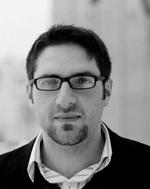 |
Ufuk Topkara holds an MA in History and Philosophy and works as a guide at Jüdisches Museum Berlin. He studied at Humboldt-Universität Berlin where he graduated in 2009. In the same year he was a Fulbright Scholar at Harvard University, Cambridge, USA. He was Fellow of the "Committee on Foreign Affairs" in the House of Representatives and participated in the "Lantos / Humanity in Action Capitol Hill Fellowship Program" in 2007. He took part in the "Humanity in Action" US Program on "Diversity and Democracy" in New York City in 2006. He was also active in the committee "Antisemitismus in mehrheitlich muslimisch sozialisierten Milieus" at the Amadeo-Antonio Stiftung. Between 1997 and 2003 he was speaker for Islam in cooperation with the Evangelische Akademie Berlin, giving presentations on Islamic theology. |
A video of the panel discussion is available.
In the second part of the day, along with several participants of the earlier public panel (Bhabha, Bilgrami, Costa Lima, Diner, Lee, Irobi), Susan Arndt (University of Bayreuth), Nikita Dhawan (Goethe University Frankfurt), Helen Gilbert (Royal Holloway, University of London) and Kien Nghi Ha contributed to a lively discussion, all of them having dealt with the phenomenon of identity from a scientific point of view.
